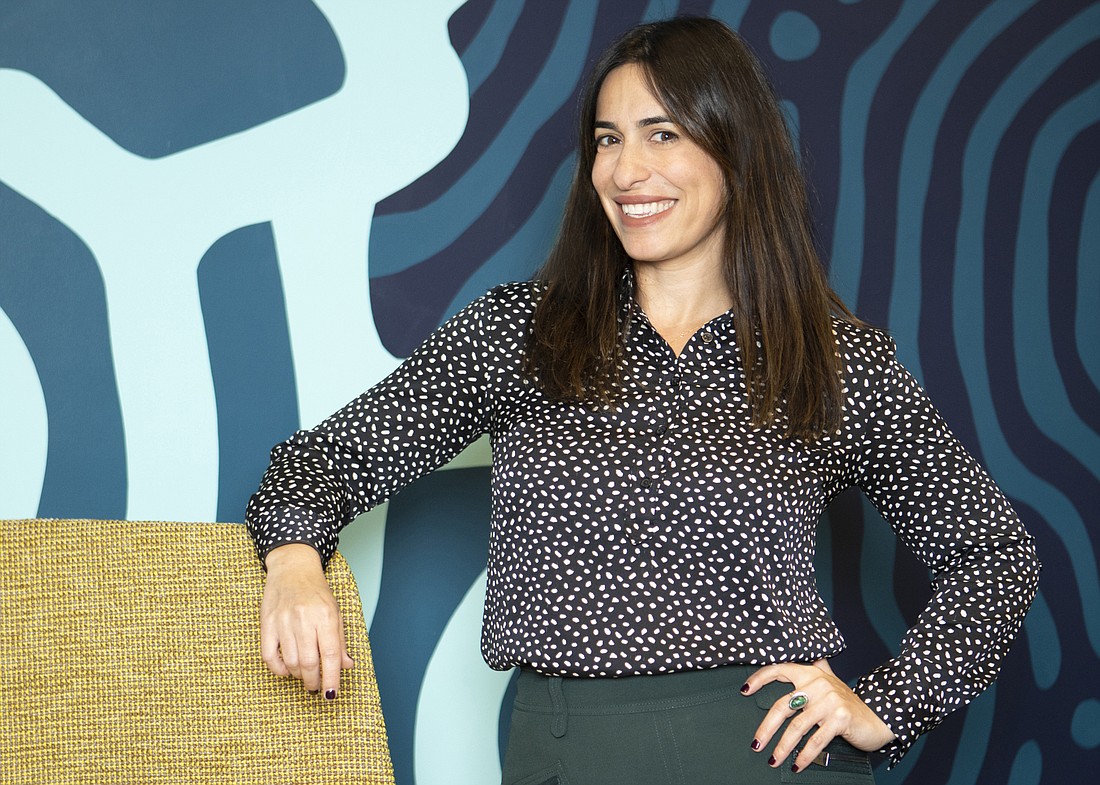- December 25, 2024
-
-
Loading

Loading

Like doctors and nurses searching for a cure to a rare disease, Rachel Feinman, who works in health care technology, isn’t shy about going outside her bubble to improve her chances for success. “I’m really passionate about making meaningful connections that create change,” Feinman says.
The opportunities to do that are far and wide at TGH Innoventures, the technology and innovation arm of Tampa General Hospital, where Feinman is the managing director. Feinman has made those connections at medical centers from New York to Michigan, all with the north star of finding more ways to deliver health care more efficiently, with better outcomes, at TGH. The community-based hospital, with operating revenue of $1.84 billion in 2021, some 8,000 employees and 1,040 beds, is one of the largest medical centers on the west coast of Florida. “Connecting dots is a huge part of my role here,” says Feinman, also a vice president of innovation at TGH.
As TGH Innoventures readies itself for its third year, its mission to use innovative technologies to make things at TGH run better and smoother, while increasing access and decreasing costs, is ever-more urgent. That’s because industry consolidation, shrinking federal reimbursement rates, labor shortages and a host of other challenges have all teamed up to squeeze hospitals. TGH President and CEO John Couris, who joined TGH in 2017 and has since been lauded nationally for embracing technology and innovation in health care, recognizes that. “TGH InnoVentures is a critical ingredient in our strategic vision to become the safest and most innovative academic health system in America," Couris said in a November 2020 statement.
An intellectual property attorney and former executive director of the Florida-Israel Business Accelerator, based in Tampa, Feinman, meanwhile, has been with TGH Innoventures since it launched in early 2021. Run out of space in Embarc Collective, a popular startup hub in Tampa’s Water Street District, TGH Innoventures essentially has three components: an innovation lab that creates, tests and modifies ideas and tools to help medical personnel drive quality and improve efficiencies; an accelerator program that nurtures early-stage startups, with TGH itself the living-learning lab; and a venture capital fund that supports health care entrepreneurs, scientists and administrators addressing real-world health care issues.
On the third component, TGH Innoventures launched with $15 million in seed money, and has since invested in three startups. It plans to invest in two more by the end of 2022, Feinman says.
A handful of medical and health care organizations nationwide have created innovation hubs like the one at TGH. Ochsner Health, which operates 47 hospitals and 370 health and urgent care centers across Louisiana, Mississippi and Alabama, has innovationOchsner, to cite one example. Known as iO, it focuses on digital health, advanced analytics and personalized medicine. Other similar tech-focused health care innovation entities are at the University of Pittsburgh Medical Center, The Mount Sinai Hospital in New York City and Henry Ford Hospital in Detroit.
Feinman says working with and seeing what other organizations are doing has helped her at TGH Innoventures. “Everyone, especially in health care,” she says, “is willing to collaborate because we are solving really big problems that mean a lot in health care.”
Looking inside TGH, Feinman has big plans for 2023. One goal? To put on a TGH Innovation Day, which would include workshops, collaborations and learning sessions. Something to get employees at all corners of TGH excited about innovative solutions to a variety of problems. “I’ve really been wanting to do that for some time,” Feinman says. “It got derailed with Covid.”
Asked her biggest up-at-night worry, Feinman says it’s both fear of maintaining the status quo and fear of disruption, “all at the same time. It depends on the day.”
That stems from being big (TGH) while trying to be innovative (TGH Innoventures).
“Big health care systems like us (often) represent the status quo,” she says. “But when you think about Amazon or Google, and what they’re doing getting into health care, we need to move fast enough and be nimble enough to react to that.”